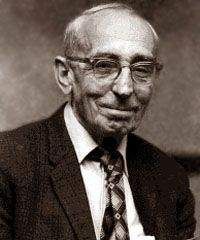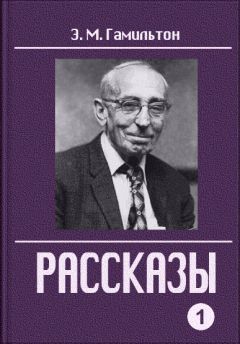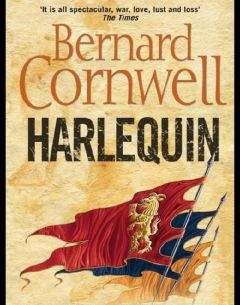Пользователь - o 3b3e7475144cf77c
"How does he manage it, Lanny?"
"He's watching all the time, and he keeps his money where he can shift it quickly. He's a bull
in good times and a bear in bad."
"It's really quite wonderful," said Irma. "Do you suppose we could learn to do things that
way?"
"Nothing would please him more than to teach us; but the trouble is you have to put your
mind on it and keep it there."
"I suppose it would get to be a bore," admitted Irma, stretching her lovely arms and yawning
in the pink satin couch of the Grand Monarque's official mistress.
XI
The young couple ran down to Juan, and Irma and Beauty held a sort of mothers' conference
on the problems of their future. Beauty was keen on yachting trips; she found them a
distinguished mode of travel; she had learned her geography and history that way, and Irma
might do the same. But the important thing was the safety they afforded. Beauty didn't care
how much Red and Pink talk her young people indulged in, provided that outside Reds and
Pinks couldn't get at them, to borrow their money, get them to start schools or papers or what
not, and involve them in fights with Fascists and police. Carry them off to sea and keep them—
and perhaps find some lovely tropical island where they could settle down and live in peace
and harmony until the cycle of revolutions and counter-revolutions had been completed! Let
the yacht serve as a supply ship to bring the latest musical compositions and whatever else
they had read of; but no Communist or Socialist agitators, no Fascists or Nazis marching,
shouting, brandishing guns and daggers! "Do you suppose they have mosquitoes in the South
Seas?" inquired the soft pink Beauty Budd.
She persuaded Irma that this was the way to keep her temperamental husband happy and
safe. Paris was a frightfully dangerous place right now; look at the way Jesse was carrying on,
rushing about from one meeting to another, making hysterical speeches, calling the Nazis all
the bad names in the French language! A copy of L’Humanité came every day to Bienvenu,
and Beauty would look into it sometimes, thinking that it was her duty to keep track of her
brother's doings; it made her quail, for she knew what fury it would arouse in the Hitlerites,
and she knew how many rich and important persons in France sympathized with them. The
Croix de Feu, the Jeunesse Française and other groups were preparing to meet force with
force; the great banks and other vested interests would surely not permit their power to be
destroyed without a fight, and it would be far more bloody and terrible than what had
happened in Germany. "Let's get away from it," pleaded Beauty. "Stay until the storm blows
over, and we can judge whether it's safe to return."
Irma was persuaded, and they sat down and composed between them a letter to Nina,
tactfully contrived to be read by Rick without giving him offense. There wasn't any danger in
England—at least, none that Rick would admit—and the word "escapist" was one of his
strongest terms of contempt. To Rick the cruise was presented as an ideal opportunity to
concentrate upon the writing of a new play. On Nina's part it would be an act of friendship to
come and make a fourth hand at bridge. To Alfy it would offer lessons in geography and
history, plus a chance to fight out his temperamental differences with Marceline. If the
parents didn't want to take the youngster from school so early, he could cross to New York
by steamer and spend the summer with the party.
They read this letter to Lanny, who said it was all right, but he could do better as concerned
his chum. Lanny was cooking up in his head a marvelous scheme. He was guessing the
psychology of a Jewish money-master who had just witnessed the seizing of his country by a
bunch of gangsters. It was bound to have made a dent in his mind, and dispose him to realize
that he and the other capitalists were living and operating inside the crater of a volcano. Lanny
was planning to lay a subtle and well-disguised siege to one of the wealthiest of Jews, to
persuade him that some form of social change was inevitable, and to get his help to bring it
about in orderly fashion. It was the plan which Lanny had already discussed with Rick, to start
a weekly paper of free discussion, not pledged to any party or doctrine, but to the general
tendency towards co-operative industry conducted under the democratic process.
"We can have him to ourselves for several months, maybe for a year; and if we can persuade
him to back us, we can do the job on a big scale and make a real go of it. Won't you come and
help? You can answer his questions so much better than I, and I believe you could put it
through."
This was a greater temptation than any Utopian dreamer could resist. Rick said, "All right,"
and Lanny telegraphed the decision to Johannes. He was tempted to repeat the quotation from
Tennyson's Ulysses which he had used a few years ago on a similar occasion—"My purpose
holds to sail beyond the sunset and the baths of all the western stars, until I die." But he
reminded himself that the Fatherland was now Hitlerland, and a sense of humor has never
been a prominent German characteristic. What might not a Nazi party censor make out of eight
or ten lines of English blank verse telegraphed from the French Riviera!
BOOK FOUR
As on a Darkling Plain
16
Root of all evil
I
A WORLD conqueror had appeared in modern times. Alexander, Caesar, Attila, Genghis
Khan, Napoleon—another such as these, appearing in the age of electricity, of rotary presses
and radio, when nine men out of ten would have said it was impossible. A world conqueror has
to be a man of few ideas, and those fixed; a peculiar combination of exactly the right qualities,
both good and bad—iron determination, irresistible energy, and no scruples of any sort. He
has to know what he wants, and permit no obstacle to stand in the way of his getting it. He has
to understand the minds of other men, both foes and friends, and what greeds, fears, hates,
jealousies will move them to action. He must understand the mass mind, the ideals or
delusions which sway it; he must be enough of a fanatic to talk their language, though not
enough to be controlled by it. He must believe in nothing but his own destiny, the glorified
image of himself on the screen of history; whole races of mankind made over in his own image
and according to his will. To accomplish that purpose he must be liar, thief, and murderer
upon a world-wide scale; he must be ready without hesitation to commit every crime his own
interest commands, whether upon individuals or nations. He must pave the highway for his
legions with the bones of his enemies, he must float his battleships upon oceans of human
blood, he must compose his songs of glory out of the groans and curses of mankind.
The singular advantage enjoyed by Adolf Hitler was that his own people believed what he
said, while other peoples couldn't and wouldn't. The attitude of the outside world to him was
that of the farmer who stared at a giraffe in the circus and exclaimed: "There ain't no sich
animal!" The more Adolf told the world what he was and what he meant to do, the more the
world smiled incredulously. There were men like that in every lunatic asylum; the type was so
familiar that any psychiatrist could diagnose it from a single paragraph of a speech or a single
page of a book. Sensible men said: "Nut!" and went on about their affairs, leaving Adolf to
conquer the world. Here and there a man of social insight cried out warnings of what was
going on; but these, too, were a well-known type and the psychiatrists had names for them.
Adolf Hitler got the mastery of the National Socialist Party because of his combination of
qualities; because he was the most fanatical, the most determined, the most tireless, and at the
same time the shrewdest, the most unscrupulous, the most deadly. From the beginning men
had revolted against his authority, and while he was weak he had wheedled and cajoled them
and when he became strong he had crushed them. There had been split after split in his
movement, and he had gone after the leaders of the factions without ruth; even before he had
got the authority of government in his hands, his fanatical Stormtroopers had been beating and
sometimes murdering the opponents of this new dark religion of Blut und Boden, blood and
soil. Work with Adolf Hitler and you would rise to power in the world; oppose him, and your
brains would be spattered on the pavement, or you would be shot in the back and left unburied
in a dark wood.
Hermann Goring, aviator and army officer, man of wealth, of luxurious tastes and insatiable
vanities, hated and despised Joseph Goebbels, the blabbing journalist, the club-footed little
dwarf with the venom-spitting tongue; and these sentiments were cordially reciprocated. Jupp
would have thrown vitriol into Hermann's face, Hermann would have shot Jupp on sight—if
either had dared. But the Führer needed Hermann as a master executive and Jupp as a master
propagandist, and he put them into harness and drove them as a team. The same thing was
true of hundreds of men in that party of madness and hate: World War victims, depression
victims, psychopaths, drug addicts, perverts, criminals—they all needed Adolf a little more than
Adolf needed them, and he welded them into something more powerful than themselves.
Hardly one who wasn't sure that he was a greater man than Adolf, and better fitted to lead the
party; in the old days many had patronized him, and in their hearts they still did so; but he
had won out over them, because of the combination of qualities. He was the one who had
persuaded the masses to trust him, and he was the one who could lead the N.S.D.A.P. and all its
members and officials upon the road to conquest.
II
Adolf Hitler had watched Lenin, he now was watching Stalin and Mussolini, and had
learned from them all. In June of the year 1924, when Lanny Budd had been in Rome, Benito
Mussolini had been Premier of Italy for more than twenty months, but the Socialists were still
publishing papers with several times as many readers as Mussolini's papers, and there was
still freedom of speech in the Italian parliament and elsewhere; there was still an opposition
party, there were labor unions and co-operatives and other means of resistance to the will of the
Fascists. It had taken the murderer of Matteotti another year and more to accomplish his
purpose of crushing opposition and making himself master of the Italian nation.
But Adolf's time-table was different from that. Adolf had a job to do in the outside world, and
had no idea of dawdling for three years before beginning it. He knew how to wait, but would
never wait an hour longer than necessary, and would be his own judge of the timing; he
would startle the world, and even his own followers, by the suddenness and speed of his
moves.
First, always first, the psychological preparation. Was he going to wipe out the rights of
German labor, to destroy a movement which the workers had been patiently building for
nearly a century? Obviously, then, the first step was to come to labor with outstretched hands,
to enfold it in a brotherly clasp while it was stabbed in the back; to set it upon a throne where it
could be safely and surely riddled with machine gun bullets.
Europe's labor day was the First of May, and everywhere over the continent the workers
paraded, they held enormous meetings, picnics and sports, they sang songs and listened to
speeches from their leaders, they heartened and inspired themselves for the three hundred
and sixty-four hard days. So now, several weeks in advance, it was announced that the Hitler
government was going to take over the First of May and make it the "Day of National Labor."
This was a government of "true Socialism"; it was the friend of labor, it was labor, and no
longer could there be a class struggle or any conflict of interest. The revolution having been
accomplished, the workers would celebrate their conquest and the new and splendid future
which lay before them. All these golden, glowing words —and all the power of press and radio to
carry the message to every corner of the Fatherland. Also, of course, the power of the police and
the private Nazi armies to terrify and crush anyone who might try to voice any other idea.
"Oh, Lanny, you should come to see it!" wrote Heinrich Jung, ecstatically. "It will be
something the like of which has not been seen in the world before. All our youth forces will
assemble in the Lustgarten in the morning and President Hindenburg himself will address us.
In the afternoon there will be costume parades of every craft and trade, even every great
factory in Germany. All will gather in the Tempelhof Airfield, and the decorations will exceed
anything you could imagine. The rich are paying for them by buying tickets so as to sit near
the Führer. Of course He will speak, and afterwards there will be fireworks like a battle—three
hundred meters of silver rain! I beg you and your wife to come as my guests—you will always
be glad that you witnessed these historic scenes. . . . P.S. I am sending you some literature
about our wonderful new labor program. You cannot have any doubts after this."
Lanny wrote, acknowledging the letter and expressing his regrets. It cost nothing to keep in
touch with this ardent young official, and the literature he sent might some day be useful to Rick.
Lanny was quite sure that he wouldn't care to enter Germany so long as Adolf Hitler remained
its Chancellor.
III
The celebration came off, with all the splendor which Heinrich had promised. Everything was
the biggest and most elaborate ever known, and even the hardboiled foreign correspondents
were awestricken; they sent out word that something new was being born into the world. On
the enormous airfield three hundred thousand persons had assembled by noon, to sit on the
ground and await ceremonies which did not begin until eight in the evening. By that time




